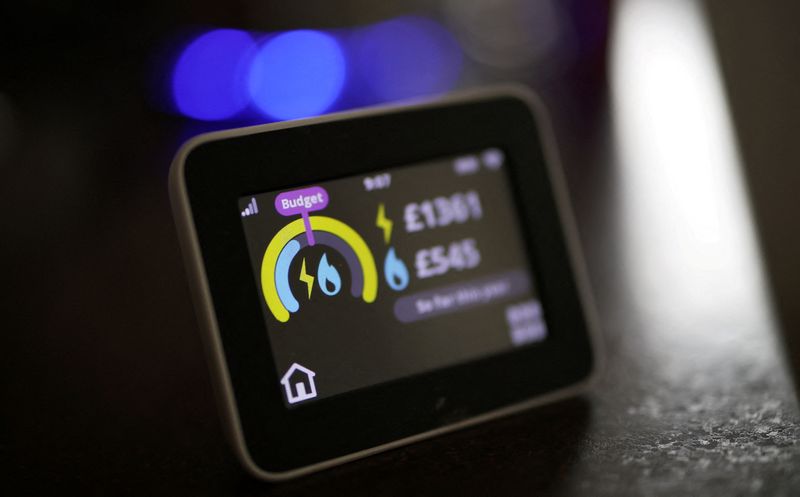By Susanna Twidale
LONDON (Reuters) – Britain’s energy regulator Ofgem has proposed reforming how companies deal with customers who owe money and said they should offer tariffs free of some charges as household energy debts hit almost 4 billion pounds ($5.1 billion).
The Labour government has promised to deliver higher living standards across every region of the United Kingdom by the end of the parliament, which could run until 2029, and has also said it wants to reduce domestic energy costs.
Under Ofgem’s price cap, home energy bills have fallen since hitting record highs following Russia’s invasion of Ukraine in 2022, but remain some 40% higher than pre-crisis levels and at unaffordable levels for many vulnerable households.
Customer energy debts have soared by 91% in the past two years, reaching 3.82 billion pounds in September, Ofgem said.
Ofgem has “set out plans to increase and standardise the support people struggling with energy debt will receive, as well as options for practical help for those households who are in real difficulty”, Tim Jarvis, director general of markets said.
Changes could include introducing new rules to make how suppliers assess customers’ ability to pay more consistent and improving the support on offer.
Ofgem also proposed making suppliers offer tariffs that do not include standing charges.
Standing charges are a daily fixed fee added to the unit price customers pay for gas and electricity, which is designed to cover costs associated with being connected to the energy system.
Consumer groups have said they are unfair because they are paid regardless of how much energy a household uses.
“We want to give consumers the ability to make the choice that’s right for them … and by having a zero standing charge tariff, we would create that choice for everyone,” Jarvis said.
Ofgem will consult on the changes and expects standing charge-free tariffs to be available next winter.
($1 = 0.7840 pounds)
(Reporting by Susanna Twidale; Editing by Mark Potter)
